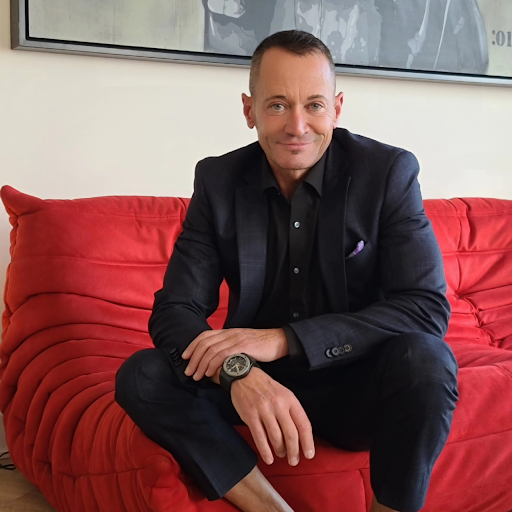
In conversation with Jean Fallacara, a renowned French serial entrepreneur, Head of Cyborgmedia LLC, founder of Z-Sciences, Z-SC1 Corp., and Cyborggainz Neuroscience Calisthenics. Fallacara pioneered the World's first human optimization program in the fitness industry that offers workout plans based on neuroscience, which has put him at the pinnacle of this industry. When asked about his exceptional stride and future goals, here's what Fallacara had to say:
What do you usually aim for in terms of lifelong goals?
Ultimately, I aim to be as free of a human as one can be. I believe the only feeling that truly brings this into existence is happiness, and therefore I've spent decades doing nothing but chasing it. It arises with a multitude of challenges and happiness is never truly constant, but the peaks and the opportunity for a healthy family life brings me daily happiness. Working on sorting of life hygiene such as sleep, food, and working out are also contributing factors to ultimate happiness as to love yourself is to love life. Money is never the thing I find myself chasing as I think the road to it, with no other superior objective in mind, makes the journey exhausting and depressing to the point where happiness, what most seek nowadays desperately, is left behind. The pursuit of the "American Dream" per se, is ultimately unachievable as the Great Gatsby has taught us. Focusing inwards on yourself and your actions, spreading goodness is what I aim for.
What do you believe the difference between strategy and a plan to be?
Strategy, in a simple way, does not involve nearly as much planning as a plan. It is rather versatile and adaptable to different citations, weighing in hypotheses and environment. A plan is more straightforward, a direct line towards the ultimate goal, extremely linear with no route to fall back on. A strategy identifies what you need to do to meet your goals in a detailed manner but remains high level in terms of how it will actually be achieved.
What do you often opt for when it comes to business?
I find myself often incorporating both aspects into my routine but spend a greater amount of plan strategizing, weighing out each option. What no one tells you about business is that most of the time you work will be spent simply thinking, balancing each possible option from one hand to another, wrapping your mind around new ideas. Ultimately a large amount of the time is spent strategizing and a much smaller portion is dedicated to planning. It takes a detailed strategy, an overall idea of how to achieve the ultimate goal, and once that's decided, making a plan is often more direct.
What exactly are the steps you take to strategize, considering it takes up a large portion of your craft?
I don't think there is exactly a linear way to strategize because life in itself is not linear. It is complicated and has curves and options. It's scary to think about how much your life can change in the time it takes for you to blink. Starting though, I will say I always try to put myself in a positive mindset. When I'm stressed or angry, my decisions are much more rash and incompetent. Some of the worst business mistakes I've made in my life have occurred because I was too emotional. I put myself in a mindful place by focusing on one thing at a time, dealing with each possible option individually. Meditation beforehand is something I've found quiets down the other useless thoughts that aren't productive and helps me stay more focused on the task at hand. Once I'm in mindful mind space, I give myself some quiet and genuinely dedicate some time to think. There is a great difference between thinking and consciously thinking, I mean we think every day whether we like it or not. Consciously thinking however involves dedication and acceptance towards your thoughts. I find that when I'm consciously thinking about a strategy, I find the most effective and innovative answer to my problems.
What do you do in moments of failure? How do you cope with the sheer negativity of it?
I think the best thing to do when it comes to failure and negativity is simply acceptance. Similar to the 5 stages of grief, acceptance is the last step in the process and is what guides you into moving on and reconstructing your ideas. The quicker you get back on your feet and accept that it's simply part of the process, the faster you're back to brainstorming and figuring out new ways to handle the issue in the right, unbothered state of mind. I'm in no way saying not to feel your emotions, I believe that is extremely harmful and either way, an emotion must come out somehow, if it is repressed in the business world it will come out when you are with your family or your friends. What I'm saying is feel your emotions to the maximum capability, accept it, and then let them go. It sounds cheesy but simply make sure you're not living on the first chapter as your story is still getting written.








